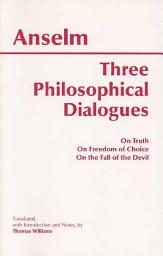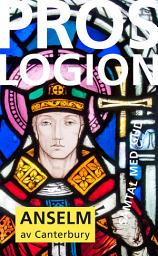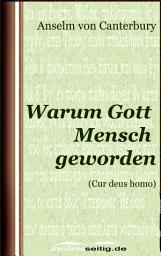Anselm of Canterbury
Anselm of Canterbury OSB, also called Anselm of Aosta after his birthplace and Anselm of Bec after his monastery, was an Italian Benedictine monk, abbot, philosopher, and theologian of the Catholic Church, who served as Archbishop of Canterbury from 1093 to 1109.
As Archbishop of Canterbury, he defended the church's interests in England amid the Investiture Controversy. For his resistance to the English kings William II and Henry I, he was exiled twice: once from 1097 to 1100 and then from 1105 to 1107. While in exile, he helped guide the Greek Catholic bishops of southern Italy to adopt Roman Rites at the Council of Bari. He worked for the primacy of Canterbury over the Archbishop of York and over the bishops of Wales, and at his death he appeared to have been successful; however, Pope Paschal II later reversed the papal decisions on the matter and restored York's earlier status.
Beginning at Bec, Anselm composed dialogues and treatises with a rational and philosophical approach, which have sometimes caused him to be credited as the founder of Scholasticism.
As Archbishop of Canterbury, he defended the church's interests in England amid the Investiture Controversy. For his resistance to the English kings William II and Henry I, he was exiled twice: once from 1097 to 1100 and then from 1105 to 1107. While in exile, he helped guide the Greek Catholic bishops of southern Italy to adopt Roman Rites at the Council of Bari. He worked for the primacy of Canterbury over the Archbishop of York and over the bishops of Wales, and at his death he appeared to have been successful; however, Pope Paschal II later reversed the papal decisions on the matter and restored York's earlier status.
Beginning at Bec, Anselm composed dialogues and treatises with a rational and philosophical approach, which have sometimes caused him to be credited as the founder of Scholasticism.
Ebooks






![Icon image Der Gottesbeweis im Proslogion und die Debatte mit Gaunilo: Lateinisch/Deutsch. [Great Papers Philosophie]](/books/publisher/content/images/frontcover/vLUwEQAAQBAJ?fife=w256-h256)


